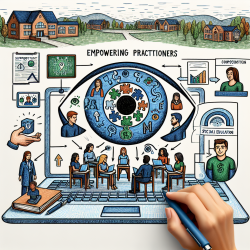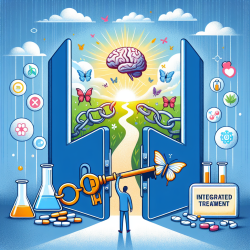Introduction
As a practitioner dedicated to creating great outcomes for children, understanding the underlying factors that affect performance is crucial. One such factor is sleep, a fundamental aspect of health that has profound implications on cognitive function, emotional regulation, and overall well-being. The research article "Sleep patterns of US healthcare workers during the first wave of the COVID-19 pandemic" provides valuable insights that can enhance practitioner skills and outcomes.
The Impact of Sleep on Healthcare Workers
During the first wave of the COVID-19 pandemic, healthcare workers (HCWs) faced unprecedented challenges that significantly impacted their sleep patterns. The study revealed that 68% of HCWs experienced a decline in sleep quality, with increased daytime sleepiness and reduced sleep efficiency being the most affected areas. Frontline workers, particularly physicians, were at higher risk of sleep disturbances.
Key Findings and Their Implications
- Daytime Sleepiness: Increased in 43% of HCWs, indicating a significant decline in alertness and cognitive function.
- Sleep Efficiency: Worsened in 37% of respondents, reflecting difficulties in maintaining uninterrupted sleep.
- Frontline Workers: Physicians were five times more likely to experience poor sleep compared to nurses, highlighting the need for targeted interventions.
These findings underscore the critical role of sleep in maintaining optimal performance and mental health, particularly during high-stress periods. For practitioners, this data highlights the importance of addressing sleep issues to enhance their effectiveness and resilience.
Applying Research Insights to Practice
Practitioners can leverage these insights to improve their skills and outcomes by:
- Prioritizing Sleep Hygiene: Implementing strategies to improve sleep quality, such as establishing regular sleep schedules and creating a conducive sleep environment.
- Monitoring Sleep Patterns: Utilizing tools and assessments to track sleep quality and identify areas for improvement.
- Addressing Stress and Burnout: Recognizing the link between stress, burnout, and sleep disturbances, and implementing interventions to mitigate these effects.
Encouraging Further Research
The study's findings also highlight the need for ongoing research into the long-term effects of sleep disturbances on healthcare workers and the development of effective interventions. Practitioners are encouraged to engage in research initiatives that explore innovative solutions to enhance sleep quality and overall well-being.
Conclusion
By understanding and addressing sleep patterns, practitioners can enhance their skills and improve outcomes for the children they serve. The insights from the study on healthcare workers during the COVID-19 pandemic provide a valuable framework for developing targeted interventions and fostering resilience in challenging times.
To read the original research paper, please follow this link: Sleep patterns of US healthcare workers during the first wave of the COVID-19 pandemic.










